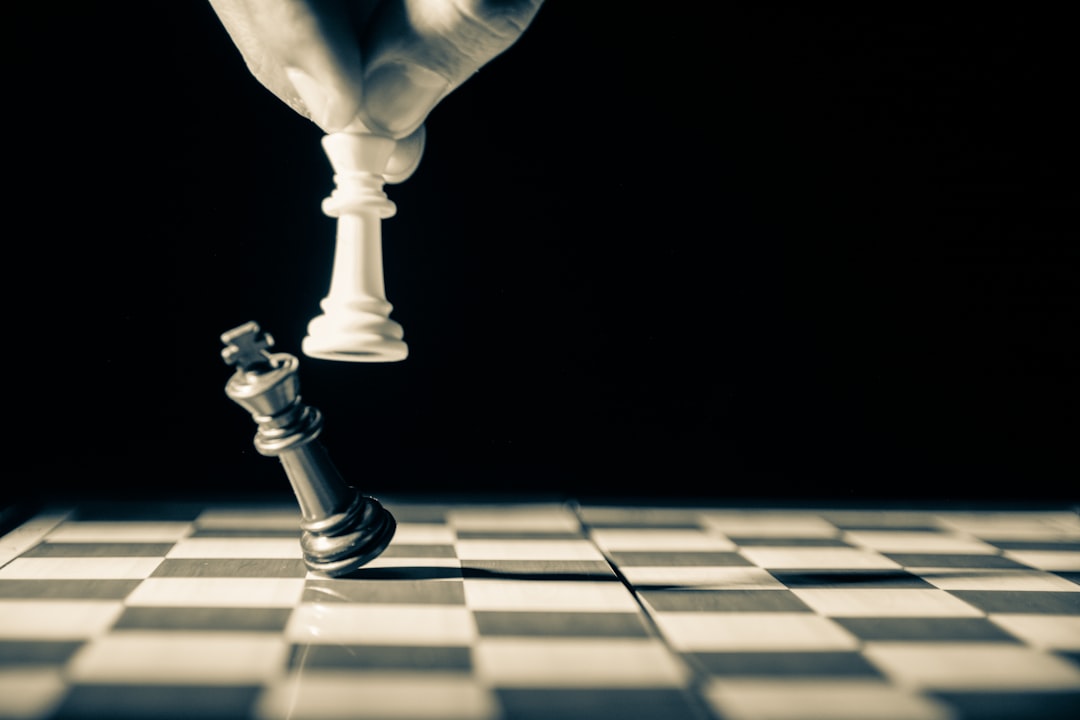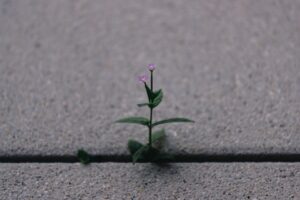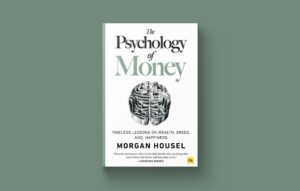Do you ever feel like you're just reacting to life instead of directing it?

I’ve been there. For years, I felt stuck in a cycle of bad habits. I was overweight, addicted to gaming, and just drifting from one day to the next. My life felt like a car with no one in the driver's seat. I was just a passenger getting thrown around by circumstances. It wasn’t until I learned to think differently—to think strategically—that everything began to change.
Strategic thinking sounds like a fancy term for CEOs and generals but it’s not. It’s simply the skill of looking ahead, connecting the dots, and making intentional choices today that lead to a better tomorrow. It’s about moving from defense to offense in your own life.
If you feel stuck or overwhelmed, I want to share some practical exercises that helped me. These aren't complicated theories. They are simple tools you can use to gain clarity and start building a life of purpose.
Think Ahead and See the Big Picture
Before you can make good daily decisions, you need to know where you're going. These exercises help you build that long-term vision.
The 5-Year Letter. Imagine it's five years from today. Write a letter to your present self from your future self. Describe your life in detail. Where are you living? What does your health look like? What are your relationships like? How has your faith grown? This isn't about wishful thinking. It's about creating a clear, compelling picture of the future you are working toward.
Identify Your "Big Rocks." Think of your life as an empty jar. Your "Big Rocks" are your most important priorities. For me, these are my faith, my family, and my health. Everything else is just sand or gravel. If you fill the jar with sand first, the rocks won't fit. You must put the rocks in first. What are your non-negotiables? Write them down and keep them visible.
Work Backward From a Goal. When I decided to lose over 110 pounds, the final number felt impossible. So I worked backward. To lose that much, what did I need to do this year? This month? This week? Today? The goal became simple: eat a healthy meal right now. Take a walk today. Breaking a huge goal into tiny, backward steps makes it achievable.
Ask "And Then What?" This is a powerful way to see the long-term consequences of your actions. Before making a decision, ask yourself, "And then what?" Keep asking it. "I'll skip my workout today." And then what? "I'll feel sluggish." And then what? "I'll be more likely to skip tomorrow." This simple question exposes the hidden costs of small, impulsive choices.
Conduct a Personal Review. Think of yourself as a project. What are your Strengths, Weaknesses, Opportunities, and Threats (SWOT)?
- Strengths: What are you good at? What spiritual gifts do you have?
- Weaknesses: Where do you struggle? What temptations trip you up?
- Opportunities: What positive changes could you make? Who can help you?
- Threats: What obstacles or negative influences stand in your way?
Be honest. This simple review gives you a clear map of where you stand right now.
Think Deeper and Make Wiser Choices
Once you have a destination, you need to navigate the daily twists and turns. These exercises help you make better in-the-moment decisions.
Play the Devil's Advocate. Before you commit to a big decision, take a moment to argue for the opposite side. Force yourself to find all the reasons why your preferred choice is a bad idea. This isn’t about being negative. It’s about pressure-testing your own logic to find weak spots before they become real-life problems.
The "Pre-Mortem." This one is great for projects or big plans. Imagine it’s six months from now and your plan has completely failed. Now, write down the story of why it failed. What went wrong? What did you overlook? This helps you anticipate problems and prepare for them before they ever happen.
The "If-Then" Plan. Life will always throw temptations and obstacles at you. An "If-Then" plan is your pre-made response. For me, it was: "IF I feel the urge to binge eat late at night, THEN I will make a cup of tea and read my Bible." You are deciding your response ahead of time, when your mind is clear, instead of in the heat of the moment.
The "Empty Chair" Explanation. Have a problem you can't solve? Sit down with an empty chair in front of you. Imagine a trusted friend or mentor is sitting there. Now, explain your entire problem to them out loud from start to finish. You’ll be amazed at how often the solution becomes clear just by forcing yourself to articulate the issue simply.
Keep a Decision Journal. For one month, write down every significant decision you make. Note why you made it, what you expected to happen, and what actually happened. This isn't about judging yourself. It's about learning your own patterns. You'll start to see where your judgment is strong and where it needs work.
Act Smarter Every Single Day
Strategy isn’t just about thinking. It’s about doing. These exercises turn your thoughts into consistent, effective action.
Find Your "2-Hour Power Block." You don't need eight hours of perfect focus to be productive. I found that I can get more done in 2-4 hours of deep, uninterrupted work than I ever did in a full day of distracted effort. Find your most energetic time of day, turn off all distractions, and dedicate it to your most important task.
The "Urgent vs. Important" Test. It's easy to get caught up in tasks that feel urgent but aren't actually important. Ask yourself: Is this task helping me move toward my long-term goals (important)? Or is it just making noise (urgent)? Focus your best energy on what's truly important.
Celebrate Small Wins. When I was losing weight, I didn't wait until I lost 100 pounds to feel good. I celebrated losing the first pound. I celebrated a week of healthy eating. These small victories build momentum. They prove to you that you can do it. Each small win is a step in the right direction.
Practice Daily Gratitude. This is the simplest and most powerful exercise. Every evening, I take a moment to thank God for three specific things from the day. It could be a productive work session, a good conversation, or just the sun shining. Gratitude shifts your focus from what’s wrong to what’s right. It grounds you in the present and reminds you of God’s daily provisions.
The Weekly Review. Set aside 30 minutes every Sunday. Look back at your week. What went well? What was challenging? Look ahead to next week. What are your "Big Rocks" for the coming days? This simple check-in keeps you on track and allows you to adjust your strategy as you go. It’s your weekly meeting with yourself.
Your First Step
Strategic thinking transformed my life. It took me from a place of chaos and reactivity to a life of purpose and intention. It’s a skill, and like any skill, it gets stronger with practice. You don't need to do all of these at once. Just pick one.
What is one area of your life that could use a little more strategy right now? Don’t overthink it. Just choose one exercise from this list and try it this week. That small, intentional step could be the start of a whole new direction.





